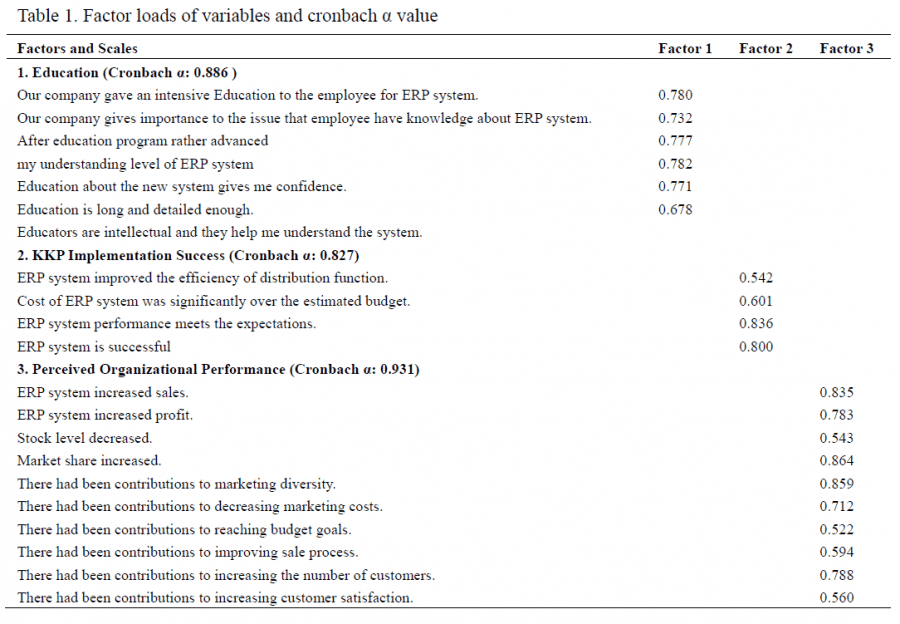ERP Implementation: End-User Training Essential to Implementation Success and Improved Business Performance
I recently came across an ERP research paper that looked into how an ERP implementation affects a company’s stucture and bottom line. The paper specifically outlined the correlation between end-user training and a successful ERP implementation.
The logic is simple:
1. ERP systems help companies improve performance;
2. Training employees as part of the ERP implementation helps them take full advantage of the system’s benefits;
3. By using the system effectively, employees improve their performance;
4. When individual performance improves and best-practice business processes are achieved through ERP, the overall performance of the organization improves (back to #1).
“Education is one of the preconditions of building a successful ERP system.”
Published in 2013 by the Canadian Center of Science and Education, the paper digs into how ERP training for end-users drives implementation success, and leads to improved business performance. Drawing from literature, studies, and research on the subjects of employee education, ERP systems, and ERP training, the paper finds that training employees is a vital part of making an ERP implementation successful. From that, “it can be said that corporations that implement ERP systems successfully will significantly increase their organizational performance1.”
ERP Implementation: software has positive effects on the working style of organizations.
If it didn’t, companies would not invest in it and it would no longer exist. Companies set out to invest in ERP technology driven by the desire to fix problems (weak performance, high costs, poor customer management, complicated work processes, contradiction in company systems, low information quality, low support for development of products and services and so on2).
These symptoms of a lack of resource organization and information management are addressed by ERP systems. ERP delivers a single information architecture that automates functions of a business and information flow. It enables companies to integrate work processes, create and transfer information effectively, adapt best practices, and get rid of unnecessary procedures and paperwork2 – all of which saves time and money.
ERP Implementation: improves and automates processes within an organization.
By devoting significant time and attention to train employees and give them the skills needed to make the transition, businesses enable employees to make the most use of the tools at hand, driving the success of the implementation and performance improvements. The paper finds that “education positively and meaningfully affects both ERP implementation success and perceived organizational performance in a statistically meaningful way3.”
A successful ERP implementation is one where the best business performance can be obtained once the ERP system is operational. The study found evidence that emphasis on education was consistent with a successful implementation and improved business performance. It found a high correlation between the three factors (education, implementation success, improved business performance) for the following categories:
Knowledge is power, and empowered employees are more likely to handle change in a positive way and adapt to best practices and new processes instead of reverting back to old habits in a new system. Putting these lessons to practice will help improve business performance across the organization.
I’d like to end by listing some lessons the paper uncovered regarding some less tangible yet positive effects of an ERP education.
An ERP education and training for a successful ERP Implementation:
- Has positive effects in behaviour, performance, acceptance of technology, attitudes and beliefs5;
- Allows users to understand their work’s relation to other functional areas within the company5;
- Teaches users to naturally prevent problems in ERP5;
- Fights fear and hesitations related to technology5;
- Helps overcome reluctance of managers and employees to organizational change brought on by ERP system5;
- Provides opportunity for users to learn the abilities and skills essential to the success of the system throughout the organization;
- Works are a prevention mechanism to downtime caused by errors within the system5;
- Ensures use of the information system by employees is efficient and effective.
It’s fair to say that if you make sure that employees have proper training and skills to use the system, you are on the right path to making your ERP implementation a success.
By Santiago Henderson
Reference:
Akça. Yasar, Saban Esen and Gokhan Ozer, “The Effects of Education on Enterprise Resource Planning Implementation Success and Perceived Organizational Performance,” International Business Research, Vol. 6 Nº5 (2013), published by Canadian Center of Science and Education, accessed November 30 2013, available here.
1 p. 176
2 p. 169
3 p. 175
4 p. 173

